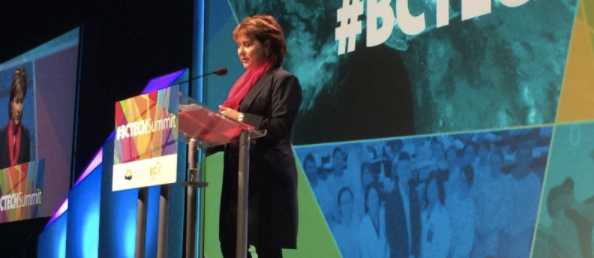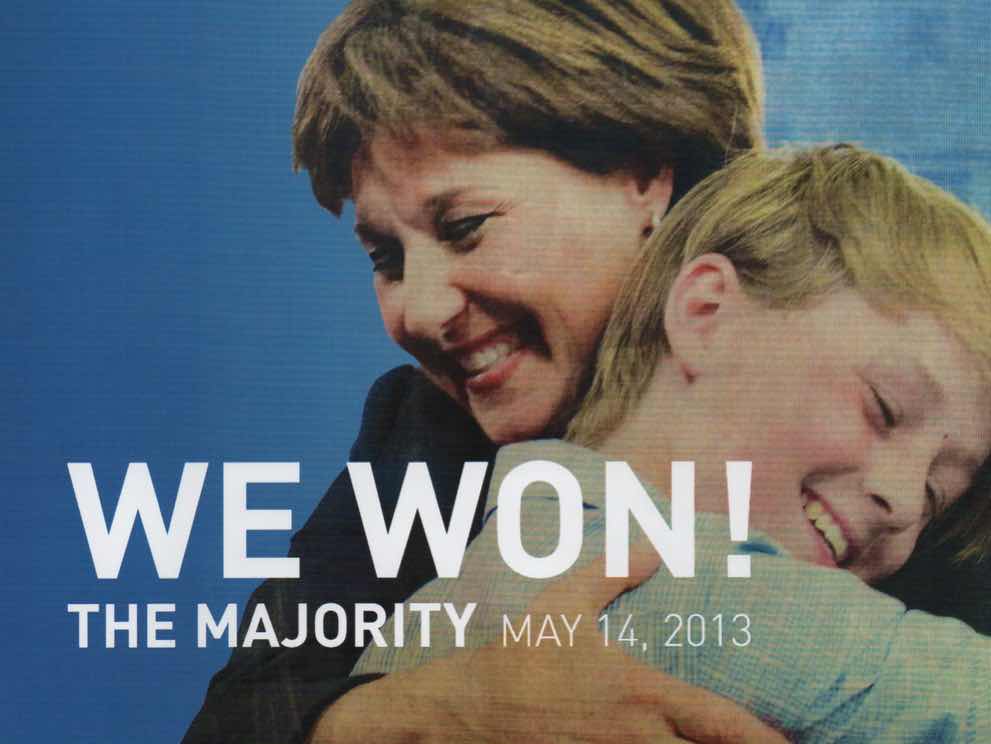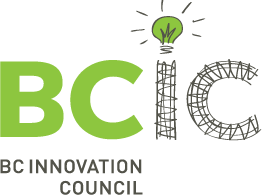Christy Clark's $1M Faux Conference Photo-op
06 Mar 2017On February 25, 2013, Christie Clark mounted the stage at the “International LNG Conference” in Vancouver to trumpet her government’s plans to have “at least one LNG pipeline and terminal in operation in Kitimat by 2015 and three in operation by 2020”.

Notwithstanding the Premier’s desire to frame economic devopment as a triumph of will, and notwithstanding the generous firehosing of subsidies and taxbreaks on the still nascent sector, the number of LNG pipelines and terminals in operation in Kitimat remains stubbornly zero. The markets are unlikely to relent in time to make the 2020 deadline.
And about that “conference”?
Like the faux “Bollywood Awards” that the government paid $10M to stage just weeks before the 2013 election, the “LNG in BC” conference was a government organized “event” put on primarily to advance the pre-election public relations agenda of the BC Liberal party.
In case anyone had any doubts about the purpose of the “event”, at the 2014 edition an exhibitor helpfully handed out a brochure to attendees, featuring an election night picture of the Premier and her son, under the title “We Won”.

The “LNG in BC” conference continued to be organized by the government for two more years, providing a stage each year for the Premier and multiple Ministers to broadcast their message.
The government is no longer organizing an annual LNG confab, despite their protestations that the industry remains a key priority. At this point, it would generate more public embarassment than public plaudits.
Instead, we have a new faux “conference”, slated to run March 14-15, just four weeks before the 2017 election begins: the #BCTech Summit.
Like “LNG in BC”, the “BCTech Summit” is a government-organized and government-funded faux industry event, put on primarily to provide an expensive backdrop for BC Liberal politicking.

The BC Innovation Council (BCIC) that is co-hosting the event is itself a government-funded advisory council run by BC Liberal appointees, many of whom are also party donors. To fund the inaugural 2016 version of the event, the Ministry of Citizens Services wrote a direct award $1,000,000 contract to the BCIC.
The pre-election timing is not coincidental, it is part of a plan that dates all the way back to early 2015, when Deputy Minister Athana Mentzelopoulos directed staff to begin planning a “Tech Summit” for spring of the following year.
“We will not be coupling the tech summit with the LNG conference. Instead, the desire is to plan for the tech summit annually over the next couple of years – first in January 2016 and then in January 2017.” – email from A. Mentzelopoulos, April 8, 2015
The intent of creating a “conference” to sell a new-and-improved government “jobs plan”, and the source of that plan, was made clear by the government manager tasked with delivering the event.
“The push for this as an annual conference has come from the Premier’s Office and they want to (i) show alignment with the Jobs Plan (including the LNG conference) and (ii) show this has multi-ministry buy-in and participation.” – S. Butterworth, April 24, 2015
The event was not something industry wanted. It was not even something the BCIC wanted. It was something the Premier’s Office wanted.
And so they got it: everyone pulled together, the conference was put on, and it made a $1,000,000 loss which was dutifully covered by the Province via the BC Innovation Council, laying the groundwork for 2017’s much more politically potent version.
This year’s event will be held weeks before the next election. It too will be subsidized heavily by the government. And as with the LNG conference, exhibitors and sponsors will plunk down some money to show their loyalty to the party of power.

The platinum sponsors of LNG in BC 2015 were almost all major LNG project proponents: LNG Canada, Pacific Northwest LNG, and Kitimat LNG. Were they, like sponsors at a normal trade conference, seeking to raise their profile among attendees? Or were they demonstrating their loyalty to the government that organized the event and then approached them for sponsorship dollars?
It is hard to avoid the conclusion that these events are just another conduit for cash in our “wild west” political culture, a culture that shows many of the signs of “systematic corruption” described by economist John Wallis in 2004.
“In polities plagued with systematic corruption, a group of politicians deliberately create rents by limiting entry into valuable economic activities, through grants of monopoly, restrictive corporate charters, tariffs, quotas, regulations, and the like. These rents bind the interests of the recipients to the politicians who create them.”
Systematically corrupt governments aren’t interested in personally enriching their members, they are interested in retaining and reinforcing their power, through a virtuous cycle of favours: economic favours are handed to compliant economic actors who in turn do what they can to protect and promote their government patrons.

The 2017 #BCTech conference already has a title sponsor: Microsoft. In unrelated news, Microsoft is currently negotiating to bring their Office 365 product into the BC public sector. If the #BCTech conference was an ordinary trade show, these two unrelated facts wouldn’t be cause for concern. But because the event is an artificially created artifact of the Premier’s Office, a shadow is cast over the whole enterprise.
Who is helping who here, and why?
A recent article in Macleans included a telling quote from an anonymous BC lobbyist:
If your client doesn’t donate, it puts you at a competitive disadvantage, he adds. It’s a small province, after all; the Liberals know exactly who is funding them, the lobbyist notes, magnifying the role donors play and the access they receive in return.
As long as BC remains effectively a one-party state, the cycle of favors and reciprocation will continue. Any business subject to the regulatory or purchasing decisions of government would be foolish not to hedge their bets with a few well-placed dollars in the pocket of BC’s natural governing party.
The cycle is systematic and self-reinforcing, and the only way to break the cycle, is to break the cycle.



